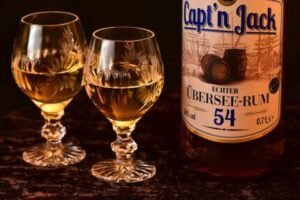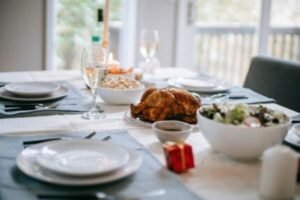Medically reviewed by Dr. Ramesh Gaddam, M.D. — Written by Sumalatha, D.N.H.E
What Foods Should I Avoid While Taking Pantoprazole?
When taking Pantoprazole, it’s best to avoid high-acidity foods such as citrus fruits and tomatoes, spicy foods, fatty and fried items, caffeinated beverages, alcohol, and carbonated drinks.
These can exacerbate acid reflux and interfere with the medication’s effectiveness.
What Cannot Be Taken with Pantoprazole?
Certain medications and substances should be avoided with Pantoprazole, including other antacids, some antibiotics, and blood thinners.
Grapefruit juice and alcohol should also be limited due to potential interactions.
Can I Drink Milk While Taking Pantoprazole?
Milk is generally not harmful when taking Pantoprazole, but it may not be the best choice if it triggers acid reflux.
It’s advisable to monitor how milk affects your symptoms and consult your healthcare provider if you have concerns.
When Should I Avoid Pantoprazole?
You should avoid Pantoprazole if you have a known allergy to the medication or if you have certain conditions such as severe liver disease.
Always consult your healthcare provider before starting or stopping any medication.
What Is a Serious Side Effect of Pantoprazole?
Serious side effects of Pantoprazole can include severe abdominal pain, persistent diarrhea, or symptoms of an allergic reaction like rash, itching, or swelling. Seek immediate medical attention if these occur.
What Organ Does Pantoprazole Affect?
Pantoprazole primarily affects the stomach and esophagus by reducing acid production.
It is metabolized by the liver and excreted through the kidneys.
Is Pantoprazole Bad for Digestion?
Pantoprazole is designed to reduce stomach acid and should not negatively affect digestion.
However, if you experience persistent digestive issues, consult your healthcare provider.
Does Pantoprazole Damage Kidneys?
Long-term use of Pantoprazole may be associated with an increased risk of kidney problems.
Regular monitoring of kidney function is recommended if you are on Pantoprazole for extended periods.
Does Pantoprazole Increase Gas?
Pantoprazole does not increase gas production. It helps to reduce stomach acid, which can alleviate symptoms of gas and bloating.
If you experience increased gas, it may be due to other factors.
What Is a Natural Substitute for Pantoprazole?
Natural substitutes for Pantoprazole include dietary changes, such as reducing acidic and spicy foods, and using herbal remedies like ginger or chamomile.
Always consult your healthcare provider before making changes to your medication.
Does Pan D Cause Gas?
Pan D, which contains Pantoprazole and Domperidone, can sometimes cause gastrointestinal side effects, including gas.
If you experience significant discomfort, consult your healthcare provider.
Can I Take Pantoprazole at Night?
Pantoprazole can be taken at night, but it is typically recommended to take it in the morning before a meal.
Follow your healthcare provider’s instructions for optimal timing.
Does Pantoprazole Make You Hungry?
Pantoprazole does not generally increase hunger.
If you notice significant changes in appetite, discuss this with your healthcare provider as it may be related to other factors.
Can I Take Pantoprazole Without Food?
Pantoprazole is usually taken before meals. It’s best to follow your healthcare provider’s instructions regarding whether to take it with or without food to ensure the best results.
What Is the Safest Acid Reflux Medication?
The safest acid reflux medication can vary based on individual health needs.
PPIs like Pantoprazole, H2 blockers like ranitidine, and antacids are commonly used, but consult your healthcare provider to determine the best option for you.
What Foods Help Reduce Stomach Acid?
Foods that can help reduce stomach acid include bananas, melons, oatmeal, and non-citrus fruits.
These can help soothe the stomach and reduce acid reflux symptoms.
What Is the Best Natural Acid Reducer?
The best natural acid reducers include ginger, chamomile tea, and aloe vera juice.
These can help reduce inflammation and soothe the digestive tract.
Always consult with a healthcare provider before trying new remedies.
Medically reviewed by Dr. Ramesh Gaddam, M.D.

General Physician, Diabetologist, and Critical Care Specialist.
Discover more from Health Build-Up
Subscribe to get the latest posts sent to your email.












4 thoughts on “Pantoprazole: 10 Foods to avoid while taking Pantoprazole”
Comments are closed.